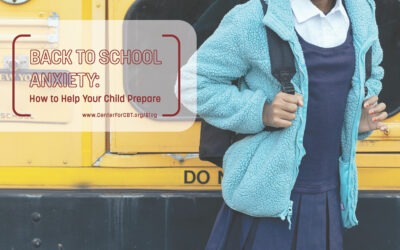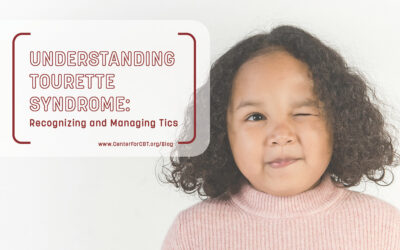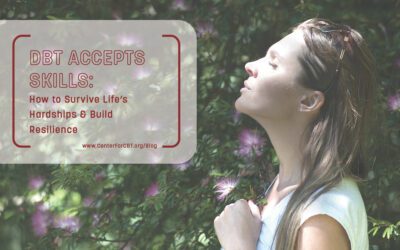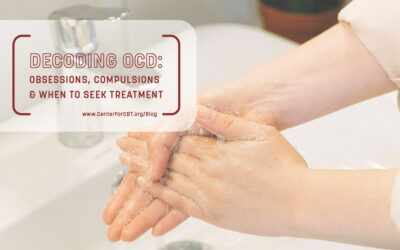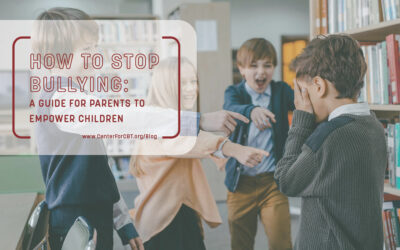Blog
Both parenting a child and being a child are tall orders in today’s climate, and we would like to offer this page as a resource for support and information to help you and your family. We will be sharing tips and strategies to navigate the numerous challenges that come with raising caring and courageous youth. Our goal is to add new material that ranges from original content, to great reads and videos from other experts, as well as articles in the mainstream media that offer additional insight.
We welcome your suggestions and feedback, and want to cover a variety of topics to help you and the community learn more. We encourage you to reach out if there are topics you would like us to cover, and questions you would like answered. And, if you find what you see to be helpful, please like our page on Facebook (@CenterForCBT) and tell your friends and family to do the same! We are very excited to be starting this project, and look forward to sharing this information with you.
Back to School Anxiety: How to Help Your Child Prepare
The start of the school year can bring on feelings of anxiety in children with the introduction of new stressors. Back to school preparation begins long before the first day of school. Parents can help their child prepare for the transition by using strategies like validation and problem solving to help them find success.
Understanding Tourette Syndrome: Recognizing and Managing Tics
While there is no “cure” for tics or Tourette syndrome, there are effective management strategies. If a child is experiencing noticeable academic, social, emotional, or other quality of life challenges as a result of their tics, working with an experienced CBIT provider can help.
How to Support LGBTQ+ Youth: A Parent Guide
Acceptance from adult figures, such as parents, teachers, and caregivers, plays a crucial role in your LGBTQ+ child’s mental health and well-being. Supporting their gender and sexual identity can strengthen your relationship, boost their confidence and self-esteem, and pave the way for success.
DBT ACCEPTS Skills: How to Survive Life’s Hardships & Build Resilience
Unlock resilience with Dialetical Behavior Therapy’s ACCEPTS skills. Navigate life’s challenges effectively with evidence-based distress tolerance techniques from DBT. Focus on these practical distraction strategies to help effectively manage distress and build resilience in times of crisis.
Decoding OCD: Obsessions, Compulsions & When to Seek Treatment
Discover the complexities of Obsessive-Compulsive Disorder (OCD), from intrusive thoughts to coping mechanisms. Learn about effective treatments like Cognitive Behavioral Therapy (CBT) and Exposure and Response Prevention (ERP).
How to Stop Bullying: A Guide for Parents to Empower Children
Empower your child against bullying with effective strategies. Differentiate between bullying and teasing, implement prevention tactics, and collaborate with educators. Foster open communication, support active intervention, and promote self-care practices. Create a culture of kindness and respect for a safer community.
The Bedtime Routine: Developing a Schedule
Unlock the secrets to a successful bedtime routine for your child’s optimal sleep and overall well-being. Gain expert insights on creating a structured nighttime schedule. Discover practical tips to ensure a peaceful night’s rest for the whole family
Ditch the New Years Resolution: Making Meaningful Changes
Discover how to transform your New Year’s resolutions with effective goal setting using CBT techniques. This guide offers practical strategies to set, pursue, and achieve your objectives any time of the year to support personal growth and success.
Radical Acceptance in DBT: Finding Peace Within Reality
When we experience challenging life situations, we can unintentionally cause ourselves more emotional pain when we are unable to accept things as they are. Practicing the DBT skill of Radical Acceptance will help you build emotional resilience and lead a more balanced and fulfilling life.

